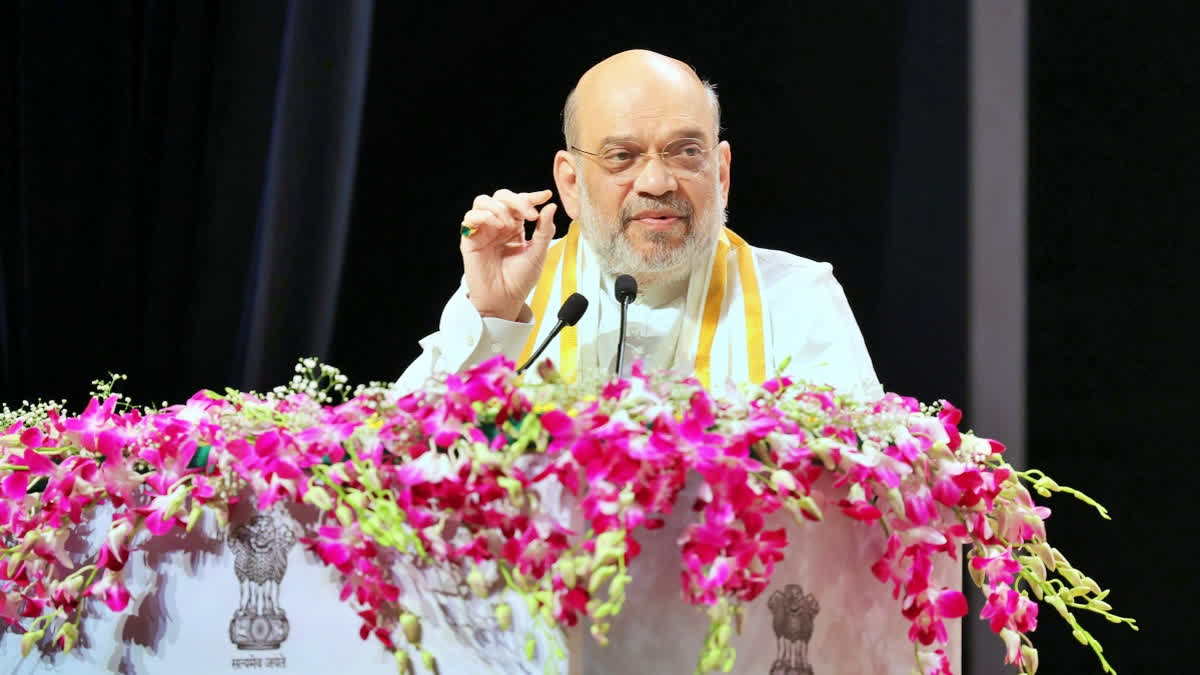New Delhi:In a major decision taken weeks ahead of the 2024 Lok Sabha elections, the BJP led central government Monday implemented the contentious Citizenship (Amendment) Act, 2019, four years after the law was passed by the Parliament.
The CAA paves the way for citizenship to undocumented non-Muslim migrants from Pakistan, Bangladesh and Afghanistan who came to India before December 31, 2014. With this, the Modi government will now start granting Indian nationality to persecuted non-Muslim migrants -- Hindus, Sikhs, Jains, Buddhists, Parsis and Christians -- from the three countries.
Union Minister Amit Shah said Prime Minister Narendra Modi has delivered on another commitment and realised the promise of the makers of the Constitution. "These rules, called the Citizenship (Amendment) Rules, 2024 will enable the persons eligible under CAA-2019 to apply for the grant of Indian citizenship," a Home Ministry spokesperson said. "The applications will be submitted in a completely online mode for which a web portal has been provided," the spokesperson added.
Here are the key excerpts from the Citizenship Amendment Act rules notified on Monday.
Who can apply for citizenship and how?
The applicant has to submit the application online to the Empowered Committee through the District Level Committee (DLC) headed by Designated Officer (DO). For this purpose, the applicant may visit https://indiancitizenshiponline.nic.in or mobile application namely CAA-2019. By answering simple questionnaire, the online system will prompt the applicant to the form as per his/her eligibility. Application for grant of citizenship by registration or naturalisation shall not be entertained unless:
1. The application from a person of Indian origin for registration as a citizen of India.
2. The application from a person who is married to a citizen of India, for registration as a citizen of India.
3. The application from a person who is a minor child of a person who is a citizen of India.
4. The application from a person whose parents are registered as citizens of India.
5. The application from a person who or either of his parents was a citizen of Independent India
6. The application from a person who is registered as an Overseas Citizen of India Cardholder
7. The application from a person for grant of citizenship by naturalisation fulfilling the qualifications for naturalisation under the provisions of the Third Schedule, is submitted in Form VIIIA which includes- (i) an affidavit verifying the correctness of the statements made in the application along with an affidavit from an Indian citizen testifying the character of the applicant; and (ii) a declaration from the applicant that he has adequate knowledge of one of the languages as specified in the Eighth Schedule to the Constitution. (The applicant shall be considered to have adequate knowledge of the concerned language if he can speak or read or write that language.
List of Documents to prove that the applicant is a national of Afghanistan or Bangladesh or Pakistan
1. Copy of the passport issued by the Government of Afghanistan or Bangladesh or Pakistan.
2. Registration Certificate or Residential Permit issued by the Foreigners Regional Registration Officer (FRRO) or Foreigners Registration Officer (FRO) in India.
3. Birth certificate issued by a Government authority in Afghanistan or Bangladesh or Pakistan.
4. School certificate or Educational certificate issued by the School or College or Board or University authorities in Afghanistan, Bangladesh or Pakistan.
5. Identity Document of any kind issued by Government of Afghanistan or Bangladesh or Pakistan or any other Government authorities or Government agencies in these countries.
